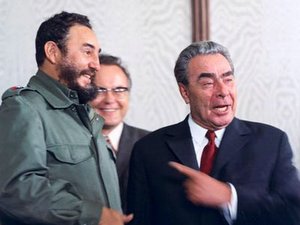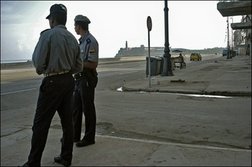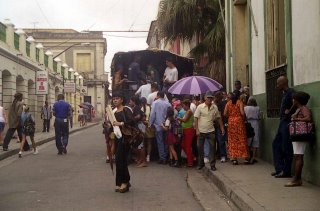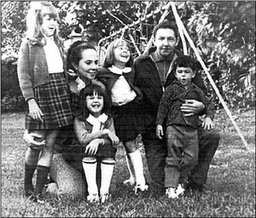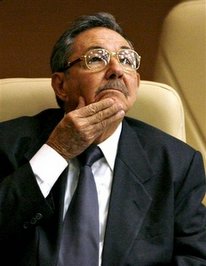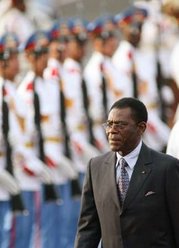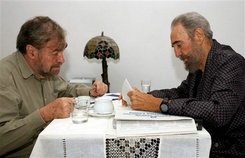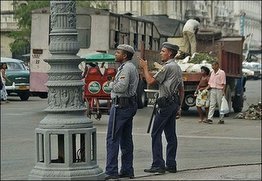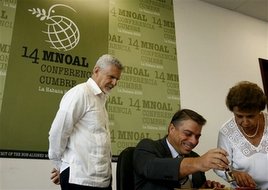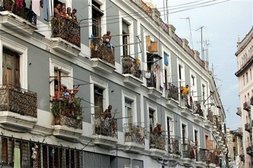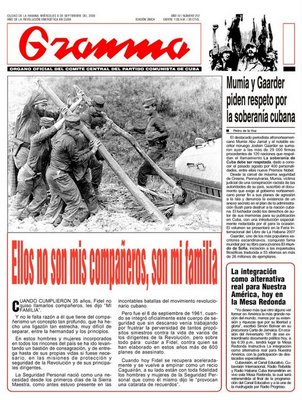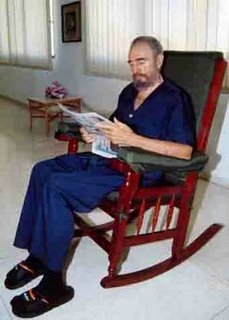News from an embargoed island

The 19th congress of the rubberstamp Cuban Labour Federation (CTC) has just closed in Havana with a lenghty declaration attacking the "Empire" and in support of the absent ghost, Fidel Castro.
Naturally enough, the document was supported unanimously by the delegates.
The highlight of the closing session was a speech by Raul Castro, standing in for his ailing brother, where the man supposedly in charge at present rejected recent overtures by the Americans for a possible political opening in Havana.
Instead, the younger Castro spent a fair bit of time talking about "the enemy".
And no, he wasn't referring to rampant corruption or low wages or faltering productivity ... or even that stupid mosquito that is making so many Cubans ill.
He was referring to the United States, of course, and "the blockade", which is how the Castro regime - and its apologists elsewhere - always refer to the American commercial embargo that has been in place for about 45 years.
So, I thought the photograph above - taken by Javier Galeano of Associated Press - might be of interest.
The caption reads: A Cuban worker cleans the wind shield of a Mercedes Benz SE350 at the International Transport Fair in Havana, Cuba, Wednesday, Sept. 27, 2006. The International Transport Fair opened to the public today until Sept. 30, 2006.
See? The "blockade" at work.


